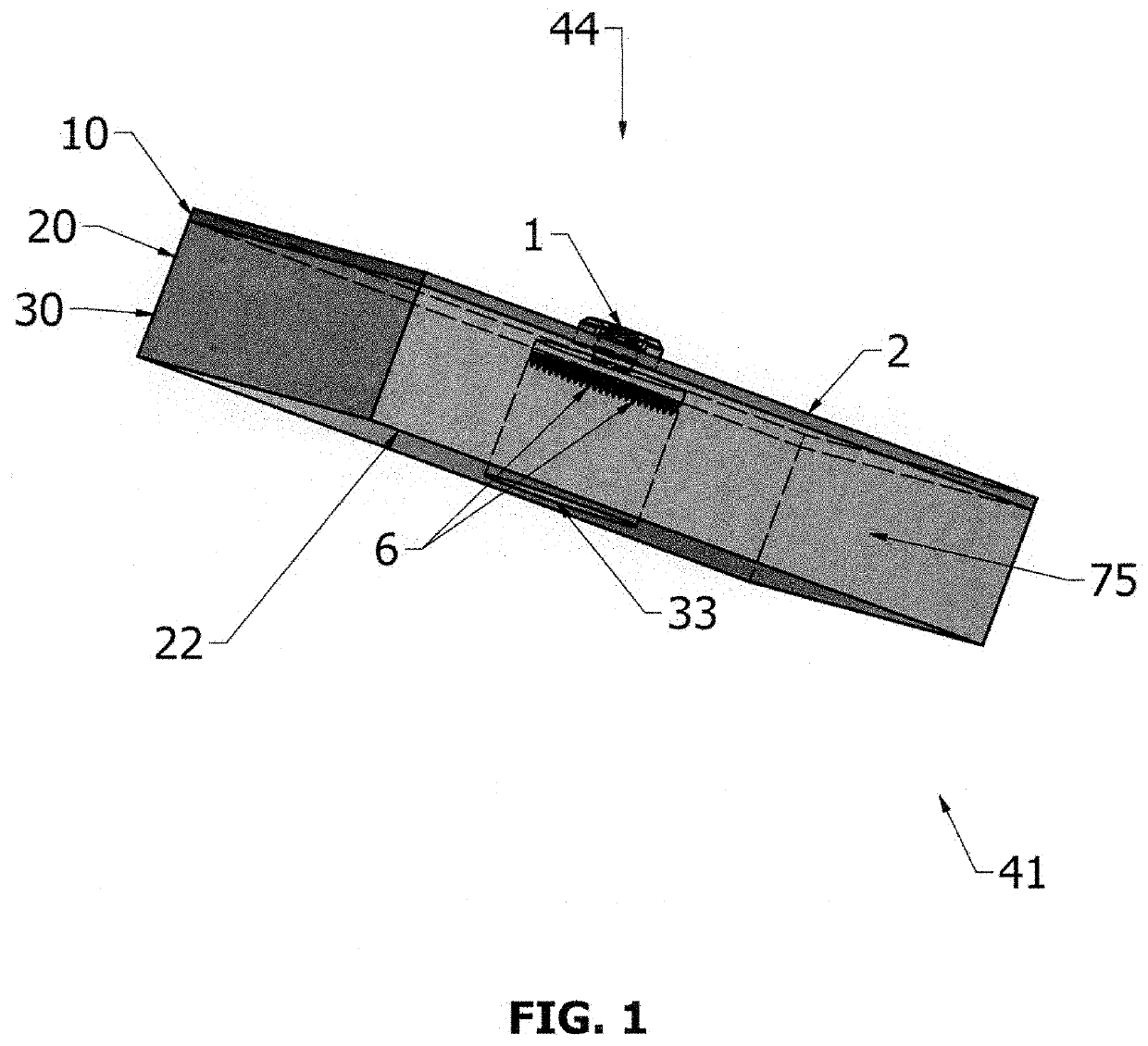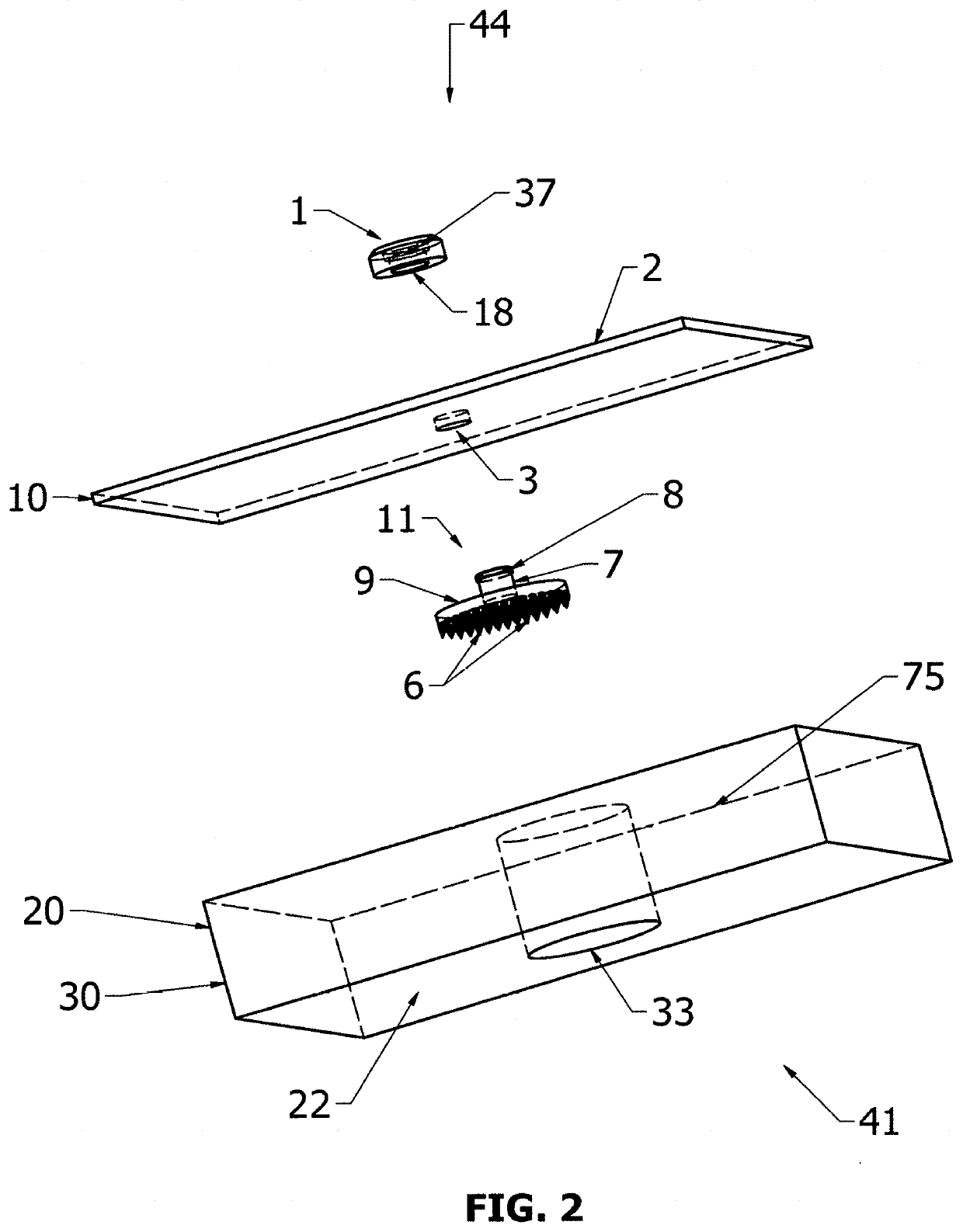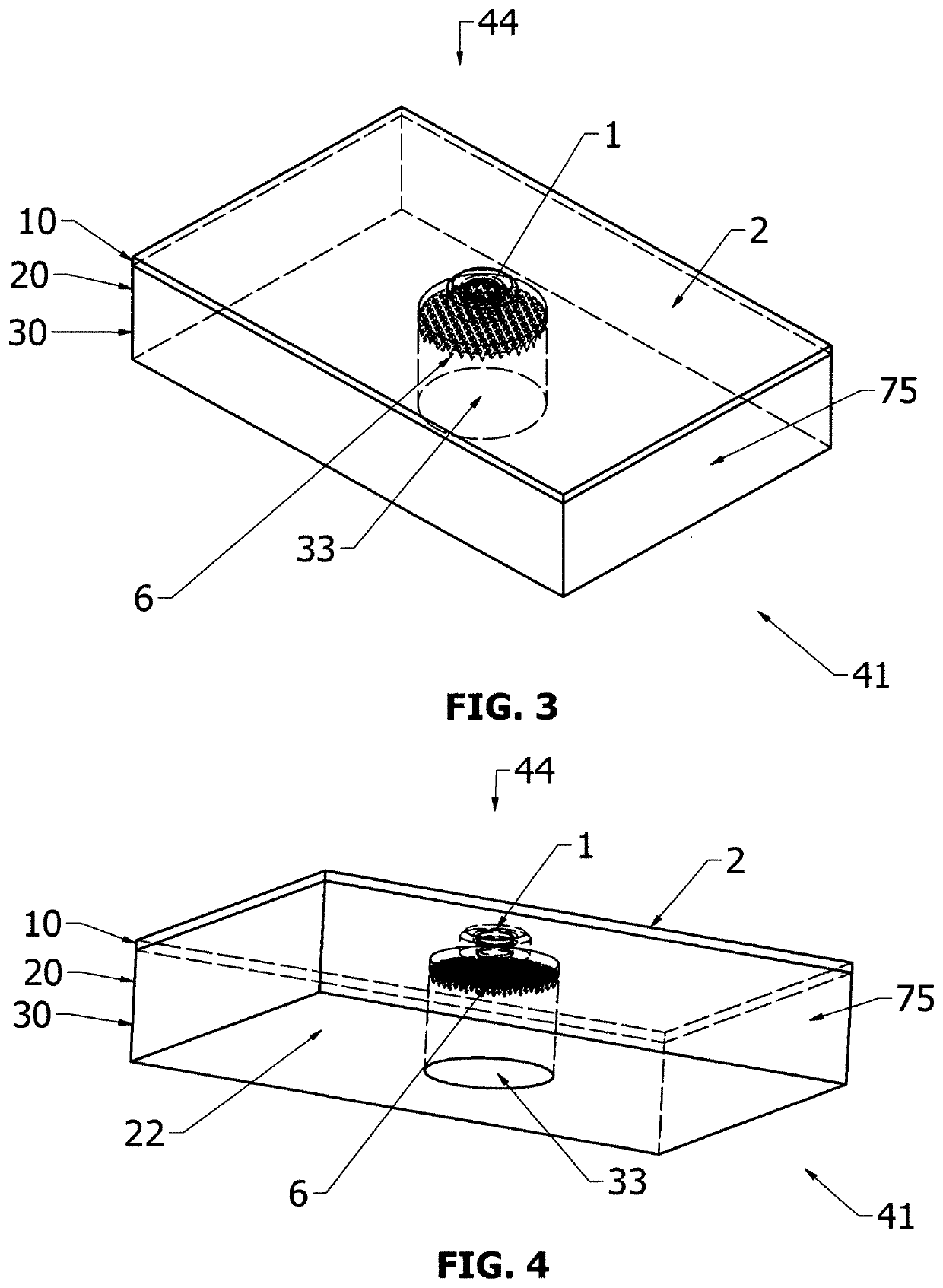Scraper sponge
- Summary
- Abstract
- Description
- Claims
- Application Information
AI Technical Summary
Benefits of technology
Problems solved by technology
Method used
Image
Examples
Embodiment Construction
[0036]The present invention is directed to a scraper sponge and / or pad adapted for scraping and removing unwanted substances such as dirt, hardened oils or grease, mildew, waxes, stuck on foods, or other substances that adhere to surfaces and reside in corners, grooves and crevices.
[0037]Referring to FIGS. (1 Thru 4) an embodiment of the scraper sponge is shown and generally indicated by reference numeral 41. The scraper sponge 44 comprises a sponge body 41 defining a first surface 2, second surface 22 opposite first surface, and a continuous side surface 75 around the perimeter of the scraper sponge. The sponge body 41 can be made from numerous materials such as polyester foam, natural sponges, polyurethane foams, cellulose fiber, absorbent arrays of synthetic fibers or any type of material or combination thereof. The invention is not limited in this regard, and any appropriate sponge material that is currently known or later becomes known to those skilled in the art may be used. I...
PUM
 Login to View More
Login to View More Abstract
Description
Claims
Application Information
 Login to View More
Login to View More - R&D
- Intellectual Property
- Life Sciences
- Materials
- Tech Scout
- Unparalleled Data Quality
- Higher Quality Content
- 60% Fewer Hallucinations
Browse by: Latest US Patents, China's latest patents, Technical Efficacy Thesaurus, Application Domain, Technology Topic, Popular Technical Reports.
© 2025 PatSnap. All rights reserved.Legal|Privacy policy|Modern Slavery Act Transparency Statement|Sitemap|About US| Contact US: help@patsnap.com



